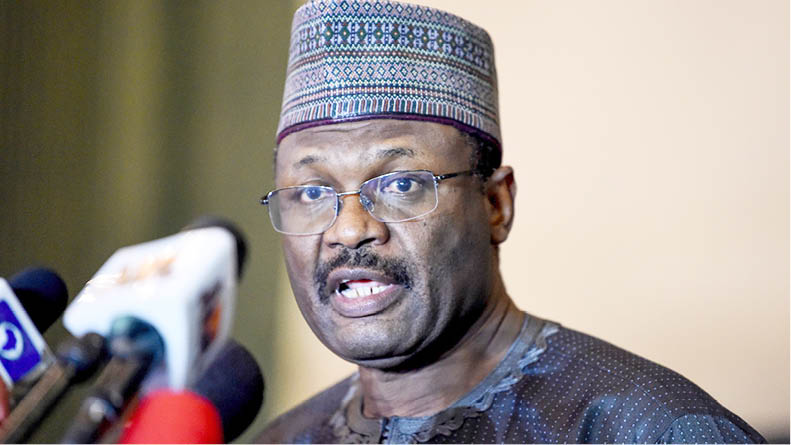Ahead of the 2023 general elections, Nigerian youths aged 18-34 are leading the pack of new registrants in the Independent National Electoral Commission (INEC) ongoing Continuous Voter Registration (CVR) exercise with 78.7 per cent.
The chairman of INEC, Prof. Mahmood Yakubu, said this on Wednesday in Abuja at a press conference.
- COEASU backs ASUU on UTAS, asks FG to drop ego
- Bandits didn’t fire single shot’, witness speaks on fresh Zamfara college attack
He said of the total 1,390,519 valid registrants, the youths recorded 1,093,834 fresh registrants; while the middle-aged registration peaked at 210,233 or 15.1 per cent.
Also, the elderly aged 50-69 registrants were 5.5 per cent or 76,569 while the old who were 70 years and above were 9,883 or 0.7 per cent.
“The ongoing CVR exercise is now into the fourth quarter nationwide. We restarted the CVR on 28th June 2021 after it was suspended for the 2019 general elections.
“Although the exercise was scheduled to restart earlier, it was delayed by the outbreak of the COVID-19 pandemic and various security challenges, including the persistent attacks on our offices and facilities in various parts of the country, mainly between October 2020 and May 2021.
“During the period from 28th June to 20th December 2021, millions of Nigerians commenced their registration online and thereafter scheduled appointments to complete the process physically.
“For the pre-registration option, 1,014,382 registrants completed the process while 1,509,076 Nigerians registered in-person at our designated registration centres nationwide.
“Furthermore, 671,106 Nigerians submitted requests to update their records, transfer their registration from where they are currently registered to other locations or the replacement of their lost or damaged PVCs,” Yakubu said.
Cleaning up data
Yakubu said the introduction of the biometric registration of voters in 2011 helped to sanitise the register.
He added that initially, 73,528,040 Nigerians were registered in 2011 and that using the Automated Fingerprint Identification System (AFIS), the commission was able to remove 4,239,923 invalid registrations.
“Unfortunately, the troubling issue of invalid registration still persists which we detected while cleaning up the latest registration data. As against the AFIS used in previous exercises, the commission introduced the Automated Biometric Identification System (ABIS) which is a more comprehensive and robust system, involving not just fingerprint identification but also the facial biometric recognition.
“Sadly, it seems that many registrants, either out of ignorance that they do not need to re-register if they had done so before, or a belief that our systems will not detect this infraction, have gone out to register again.
“This is despite repeated warnings by the commission against this illegal action. In addition, there are also registrants whose data were incomplete and did not meet our business rules for inclusion in the register,” he said.
Yakubu said both categories, that is, the failure of ABIS and incomplete data, constitute invalid registrations. Presently, nearly 45 per cent of completed registrations nationwide are invalid, rising to as high as 60 per cent or more in some states.
He lamented that this infraction happened in all states of the federation and that no state is immune from it.
The INEC boss said after completing the data clean up, the commission has printed 1,390,519 PVCs for genuine, new registrants and that in addition, 464,340 PVCs for verified applicants for transfer or replacement of cards have also been printed.
Yakubu also said the dates for all activities in the Timetable and Schedule of Activities for the 2023 General Elections, including the conduct of party primaries, are firm and fixed.
He said 10 of the 18 registered political parties have served notices to the commission for the conduct of their primaries.

 Join Daily Trust WhatsApp Community For Quick Access To News and Happenings Around You.
Join Daily Trust WhatsApp Community For Quick Access To News and Happenings Around You.


